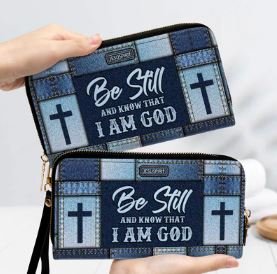Embracing Ink: A Christian Perspective on Tattoos Today
As an Amazon Associate, I earn from qualifying purchases. This page contains affiliate links. If you choose to make a purchase after clicking a link, I may receive a commission at no extra cost to you.
Visit our Holy Spirit Gear Store- - - - - ->>> HERE <<< - - - - - - New items Weekly
Ever since I first considered getting a tattoo, I found myself wrestling with the question: Can tattoos and faith coexist harmoniously? Growing up in a Christian community, I was often reminded of Leviticus 19:28, which seemed to clearly oppose tattoos. Yet, as I look deeper into scripture, seeking understanding beyond a single verse, I embarked on a journey that revealed the richness of God’s word and its relevance to our lives today, tattoos included.
Historical and Cultural Context of Leviticus 19:28
Leviticus 19:28 states, "Do not cut your bodies for the dead or put tattoo marks on yourselves. I am the LORD." To understand this commandment fully, it's essential to grasp the context in which it was given. The Israelites were surrounded by pagan cultures that used body modifications, including tattoos, as part of idol worship and mourning rituals. God's directive was not merely about the act of marking the skin but was a call for His people to set themselves apart from pagan practices and to worship Him without adopting the surrounding cultures' idolatrous customs.
As I pondered this, it became clear that the intention behind the prohibition was about holiness and identity rather than the act of tattooing itself. It prompted me to question: In a modern context, where tattoos are often artistic expressions of personal stories, beliefs, or memorials, could the same principles apply?
New Testament Perspectives on Law and Grace
As my exploration deepened, I turned to the New Testament, seeking guidance on the law and grace, particularly how they pertain to practices like tattooing. The apostle Paul, in his epistles, provides profound insights into the transition from the Old Covenant, underpinned by adherence to the law, to the New Covenant, characterized by grace through faith in Christ Jesus.
In Romans 7:6, Paul states, "But now, by dying to what once bound us, we have been released from the law so that we serve in the new way of the Spirit, and not in the old way of the written code." This passage sparked a pivotal moment in my understanding. It suggested that the ceremonial and cultural laws of the Old Testament, including those regarding tattoos, were fulfilled and transformed by Christ's sacrifice. We are now guided by the Holy Spirit, not by the letter of the law.
Galatians 5:1 further reinforced this freedom, declaring, "It is for freedom that Christ has set us free. Stand firm, then, and do not let yourselves be burdened again by a yoke of slavery." Here, Paul encourages believers to embrace the liberty found in Christ, a liberty that empowers us to express our faith and identity in diverse ways, as long as they honor God and edify others.
This New Testament perspective does not diminish the Old Testament's value but rather frames it within the context of Christ's redemptive work. As such, it invites Christians to consider how their freedoms, including the choice to get a tattoo, can be exercised in ways that reflect God's glory and love.
Tattoos as a Form of Expression and Faith
My journey then led me to reflect on tattoos as a means of expression and faith. I've encountered numerous fellow believers who have chosen to ink their skin with symbols, verses, or images that hold deep spiritual significance for them. For some, a tattoo serves as a permanent reminder of God's faithfulness during difficult times; for others, it's a way to wear their testimony or a Scripture that has profoundly impacted their lives.
These personal stories challenged me to view tattoos not merely as aesthetic choices but as potential declarations of faith and hope. In 2 Corinthians 3:3, Paul writes, "You show that you are a letter from Christ, the result of our ministry, written not with ink but with the Spirit of the living God, not on tablets of stone but on tablets of human hearts." While Paul speaks metaphorically of being marked by Christ's spirit rather than ink, it prompted me to consider how tattoos, when chosen thoughtfully, can be an outward symbol of the transformation within our hearts.
This realization opened my mind to the diverse ways in which faith can be expressed and shared. It underscored the importance of looking beyond the surface to understand the intent and meaning behind a person's choice to get a tattoo.
Guiding Principles for Christians Considering Tattoos
As I navigated through these reflections, it became evident that while freedom in Christ encompasses personal expressions such as tattoos, it also beckons a thoughtful discernment process. For those contemplating tattoos, I've distilled several guiding principles based on scripture and personal introspection, aimed at ensuring our choices align with our faith and values.
Reflect on the Motive: The intent behind getting a tattoo should be the first consideration. Is it to honor God and express one’s faith, or is it driven by a desire to conform to societal trends? Paul’s words in 1 Corinthians 10:31 resonate deeply here, "So whether you eat or drink or whatever you do, do it all for the glory of God." This scripture encourages us to ensure that our actions, including getting tattoos, are done in a way that glorifies God.
Consider the Content: The content of the tattoo should reflect something meaningful and positive about your faith, values, or personal journey. Philippians 4:8 advises, "Finally, brothers and sisters, whatever is true, whatever is noble, whatever is right, whatever is pure, whatever is lovely, whatever is admirable—if anything is excellent or praiseworthy—think about such things." This principle applies well to choosing a tattoo design that uplifts and edifies.
Seek Peace Through Prayer: Making decisions in a spirit of prayer ensures that we remain aligned with God’s will. Philippians 4:6-7 tells us, "Do not be anxious about anything, but in every situation, by prayer and petition, with thanksgiving, present your requests to God." Praying about the decision to get a tattoo can bring clarity, peace, and sometimes, a change of heart if the motive or content doesn’t truly resonate with one’s spiritual journey.
Community Consultation: Engaging in open discussions with fellow believers or spiritual mentors can provide valuable perspectives and wisdom. Proverbs 15:22 notes, "Plans fail for lack of counsel, but with many advisers they succeed." While the decision ultimately lies with the individual, seeking counsel ensures a well-rounded consideration of how a tattoo might be perceived within one's community and whether it aligns with one's Christian witness.
Engaging with Diverse Christian Perspectives
Throughout this exploration, I've been reminded of the rich tapestry of beliefs and convictions within the Christian community. Engaging with diverse perspectives on tattoos has been enlightening and has emphasized the importance of approaching such discussions with grace and understanding.
Ephesians 4:2-3 urges us to "Be completely humble and gentle; be patient, bearing with one another in love. Make every effort to keep the unity of the Spirit through the bond of peace." This scripture has guided my interactions, reminding me that our unity in Christ transcends our differences in opinion or practice. It's through respectful dialogue that we can appreciate the breadth of Christian liberty while upholding the core tenets of our faith.
While some believers hold strong convictions against tattoos based on their interpretation of scripture, others see them as a valid form of personal and spiritual expression. Recognizing that our faith is defined by our relationship with Christ rather than external markings, it's essential to extend grace and refrain from judgment, allowing for individual freedom under the guidance of the Holy Spirit.
Reflecting on this journey, I'm reminded of the delicate balance between freedom and responsibility that defines our walk with Christ. Exploring the topic of tattoos within a Christian framework has not only broadened my understanding but has also deepened my appreciation for the diversity and depth of personal faith expressions.
In navigating decisions like getting a tattoo, it's crucial to remember that our ultimate aim is to honor God in all that we do. As we exercise our freedoms, let's do so with a heart attuned to His voice, mindful of our witness to others, and always seeking to build up the body of Christ.
This exploration into the world of tattoos has been a personal testament to the grace that guides us and the love that unites us. May we continue to journey together, embracing our freedoms while carrying the responsibility of our faith with integrity and love.










